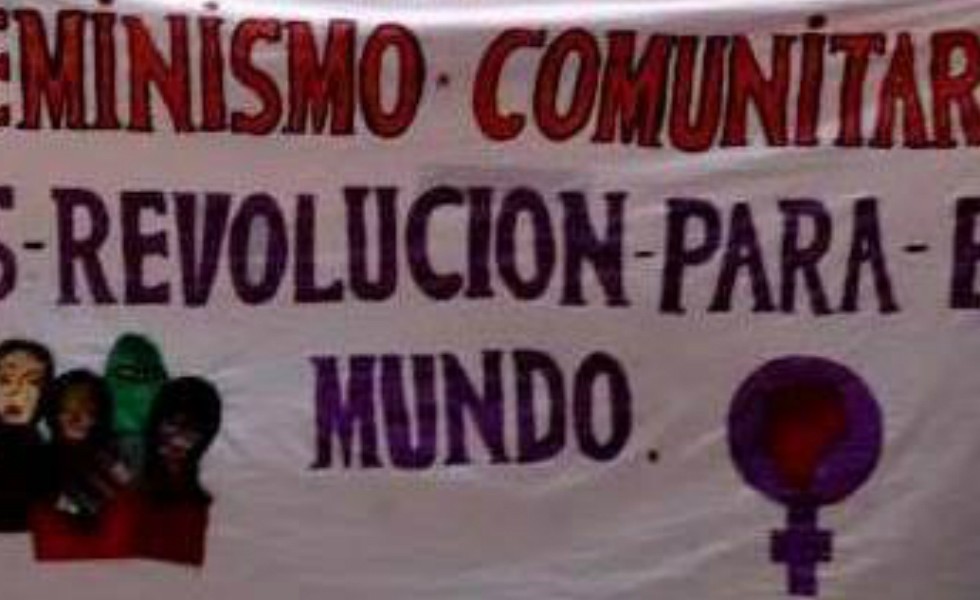Filed under: Anti-Patriarchy, Editorials, Mexico

Translated and submitted to It’s Going Down
As an Organic Movement of Communal Feminism, from the memory of struggles of women, and with the commitment that we have to our lands and people in resistance in Abya Yala, one of the political responsibilities that we assume in our movement is the struggle against patriarchal colonialism.
In this context, it is urgent that we make a statement from the communal feminism Migrant Ties to inform and make clear that communal feminism does not become accomplices with the colonial and liberal practices that other feminisms exercise. These are practices that come from western, white, colonial, individualistic logics that are born from liberal European feminism.
The white, Eurocentric and colonial feminisms, bourgeois feminism, feminism of equality, institutional feminism, feminism of equality of gender and public politics, queer feminism and liberal feminism, etc. All of those feminisms that recycle the systems of power have become accomplices with neoliberalism and have contributed to depoliticize and disarticulate the struggles of our people. They have done this through their reductionist manner of understanding patriarchal oppression, understanding gender as synonym of patriarchy. They have taken up struggles from the individual, searching for individual liberation in place of providing tools for the collective liberation of our peoples.
For communal feminism it is not sufficient to only liberate gender. We need to liberate ourselves of all oppressions from which patriarchy is intertwined—the racist oppressions, colonial oppressions, homophobia, class oppressions. We also need to liberate our Pachamama sister that suffers systemic exploitation of the planetary system by deadly patriarchal domination. The prison of gender, for communal feminism, is a form amongst many others that patriarchy attacks and dominates, but not the only.
We want to make it clear that we also exist as feminist women that struggle from the distant territories in Abya Yala and the world, and we contribute to nurture and strengthen the revolutionary processes of our people and their autonomies. From the organized movement of communal feminism in Abya Yala we have come to elaborate, from the reflections of our realities and memories as exploited, discriminated, and marginalized women, our own political concepts and categories of what for us is feminism and patriarchy.
Communal feminism is not a feminism born in the west. Communal feminism derives from the long memory of struggle of Aymara women in the Bolivian territory and proposes concrete tools for the struggle and the liberation of our peoples.
We distance ourselves from the colonial feminist practices that do not respect the autonomy of the struggles of the people and in a disrespectful and opportunistic way appropriate other circumstances and struggles in order to search for their own positions and individual importance. This is a practice that, as we already know, is also carried out by political parties.
We call on feminists not to reproduce those paternalistic, colonial and classist practices. We also ask for respect of the processes of struggle, autonomy and recuperation of our sisters and compañeras that struggle together with their people in different territories. We call on feminists to decolonize feminism and find themselves in the political and feminist proposals that are coming from the struggles of the women and people in Abya Yala, to contribute to a truthful form of revolutionary processes that can be carried out today in different territories.
The men and women of their own towns and communities will define the pathways and political processes for liberation.
Until the community always!
Feminismo Comunitario Tejido Migrante





